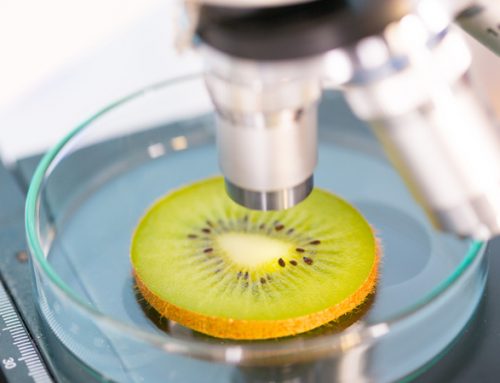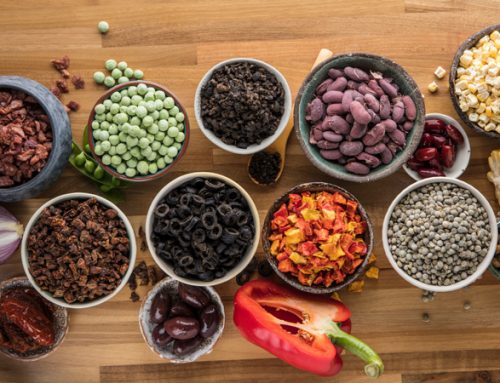Greek food and agriculture have traditionally been one of the major export sectors for Greece, with a strong presence in the European and a growing presence in the US food markets. From olive oil to flour products, honey to processed meats and ready meals, Greek companies have leveraged the competitive advantages offered by Greek primary production in order to competitively enter and remain in global markets, making food and agriculture one of the most dynamic and high-growth sectors in Greek manufacturing.
It is also an area where Greek companies have managed to innovate and differentiate themselves, both in terms of the product but also in terms of packaging. Over the past 10 years, there are several examples of companies in the food sector who have achieved significant market shares abroad by leveraging the combination of traditional Greek ingredients and innovative marketing and packaging.
Over the next years, the food & agriculture sector in Greece is expected to be a significant contributor to GDP growth and value added, driven by several key market trends and competitive advantages:
- The recent shift towards organic, natural ingredients in the Greek agriculture sector which are highly regarded and can command a greater premium and value added
- The prevalence of the Mediterranean Diet, as a premier paradigm of healthy, natural eating across the world
- The key drivers of health, ethics, physical fitness and pleasure that affect consumer preferences in developed economies
- The increased drive for self-sufficiency and food safety
- The potential for clusters of innovation and R&D in several specialized Greek food supply chains, combining EU funding, the work of research and academic institutes and the interest of industrial champions in the application of new technologies
Given the above environment, Greek food manufacturers can take advantage of their smaller scale, access to high-quality inputs and traditional Mediterranean positioning to differentiate from the global food manufacturers and gain market share value-added product segments and higher price points.
Driven by the above opportunities, there are several major Greek and international investors already looking to improve the competitiveness of the Greek food sector, by consolidating smaller holdings, shifting production to higher-value crops and investing in innovative production and packaging technologies.
Many multinationals are enjoying the benefits of being based in Greece. Giants such as Mondelēz, Lays, Barilla, Cadbury, General Mills, Friesland Campina, manufacture a wide range of products and find that local and regional markets are receptive to new product lines as well as established favorites.
Greece’s food and beverage companies have created a large sales and distribution network in Southeast Europe, a strength that is reinforced by the dynamism of the Greek enterprises operating in the region. Topping the list of products exported are vegetables, fruits, olive oil, dairy products, fresh seafood, canned fruits, olives, raisins, wine, and tomato products. More recently, Greek food and beverage companies are rapidly penetrating higher-growth markets such as the US, China, Russia and Western Europe.
There is abundant opportunity to create value added in many product categories, especially as the global interest in healthful foods, snack foods, and convenience foods continues to expand. Honey and nut-based snacks, pasta products, marmalades and pickled goods, as well as novel seafood and meat products demonstrate a significant potential in numerous markets. And as consumption of olive oil grows, Greece is ideally positioned to respond in this sector as it is the third largest producer of olive oil in the world.
Why Greece
Brand value / positioning – Greek diet is regarded as a pre-eminent example of Mediterranean diet, which has been globally accepted as one of the healthiest and most nutritional
Geography and climate conditions – Greek geography and climate can sustain some of the most diverse, high-quality natural raw materials and produce, including such exotic ingredients as saffron and truffles
Traditional high-quality ingredients – Greece has a number of recognizable POP or other local ingredients and foods whose quality is recognized by some of the greatest Chefs in the world
Specialized know how and expertise – agriculture and food production is a traditional Greek occupation, which has led to a significant amount of food research departments, agricultural schools, trained food technologists and chemists, and skilled farmers.
Research and Innovation – Greece’s universities and research institutes focus heavily on providing assistance to the food and beverage industry. A number of highly specialized research centers such as the University of Thessaly, the Food Industrial Research & Technological Development Company (ETAT), the Institute of Agrobiotechnology and the Institute of Aquaculture, assist manufacturers and processors in developing innovative solutions to meet the needs of today’s marketplace.
Key investment opportunities
- Repositioning and consolidation of primary food production using new technologies (hydroponics, greenhouses etc.) and high-value crops
- Participation in the growth and consolidation of smaller, organic producers with strong export potential
- Investment in the packaging, export and marketing of traditional staples of Greek diet such as olive oil, herbs and aquaculture
- Investment in boutique and niche market goods, leveraging the abundant high-quality raw materials, the EU-level production standards and the competitive operating costs
- Development of high-value product lines based on the global “Mediterranean Diet” trends and the exploding organic food sector
- Investment in mass-market food production for private-label or branded use, taking advantage of Greek access to the emerging growth markets of Southeast Europe where Greek F&B companies have developed an extensive production and distribution network
- New product development, production and distribution based on the R&D facilities and know-how of Greek research centers and the familiarity of Greek consumers with international food products, brands and tastes.
Food & Agriculture subsectors
Agricultural production / organic foods
Primary agricultural production has been a major export sector for Greece in the past, with Greek fruit and vegetables being consumed in several international markets. Despite the small lot size, the Greek agriculture sector has maintained a positive trade gap in a wide range of agricultural products such as tomatoes, kiwis, oranges etc., which are traditionally products with stable prices and rising demand.
The current state of affairs is shifting more people towards high-quality farm production and export, and shifting farmers to more sophisticated, export-focused, higher-value crops. This is driven both by the Greek Government, which views food exports as a significant opportunity, and also by local farmers co-operatives which are improving their know-how and entrepreneurial skills and helping farmers modernize their means of production.
The role of private investors in this process can be significant, since they can provide capital but also know-how and market access to Greek producers in order to maximize their value added and their competitiveness in the European markets.
There are several specific sectors that show potential for increased returns in terms of production capacity. Most notably, there are several types of crops which are considered “export engines” (e.g. grapes, oranges, peaches, nectarines, kiwis) and which can all meet European and global demand with the appropriate standardization and quality control. Also, a major area of value is organic food production, which is highly sought after and commands a significant premium in key western markets.
Greek specialty foods
Greek specialty foods include a variety of products, ranging from high-value niche products (Chios Masticha, Kalamata olives, Kozani Saffron, Aegina pistachios) to widely available categories which are endemic to the Greek diet (e.g. greek yoghurt, olive oil, honey) to Protected Designation of Origin Status (PDO) products only found in Greece.
These products form the spearhead of an upgrading of the Greek food production, having significant export potential and high value added in the international markets. Investment opportunities exist in several key areas:
- Consolidation and upgrading of their supply chain to ensure supply chain efficiency
- Development of innovative end products around these high-value crops
- Marketing and sales capabilities in order to penetrate developed markets and ensure market access
- The combination of local production and know-how with such investments can generate high returns for the investor interested in pursuing strategic investments within this specialty sector
Aquaculture
Although aquaculture is a relatively specialized sub-segment of food production, it is a rapidly growing sector of the Greek economy – and one where Greece can leverage its competitive advantages and already is a major international exporter.
In Greece, approximately 90% of the sector’s value is driven by two main fish products, seabass/seabream, in which Greece holds a dominant position in the global markets. Greek aquaculture production is known for its product quality and has enormous further growth potential if it invests in more capacity, economies of scale and cost-improvement initiatives.
Fish farming holds a leading position in Greece’s Food industry and it is a top industry sector in the EU characterized by strong market consolidation. Investing in the consolidation and expansion of aquaculture facilities and the improvement of competitiveness, operating efficiency and market access can yield significant returns for this sector based on its growth potential and existing market positioning.
Olive Oil
Greek olive oil is recognized as very high-quality, driven by the natural environment and production values of Greek oil producers. There are literally hundreds of local varieties and tastes, including a number of organic producers which are positioning in the global high-value market with specialty and luxury oils.
Greek Olive oil and oleaginous products are amongst the most famous agricultural products of the country, with co-ops, companies and the Greek State geared towards furthering the national export potential. Greek companies have established significant brand recognition and international distribution networks, whilst investments in market consolidation, processing, R&D, product differentiation, improved packaging, and more concentrated production output can further expand an already blossoming industry and yield significant returns.
Source: Enterprise Greece





